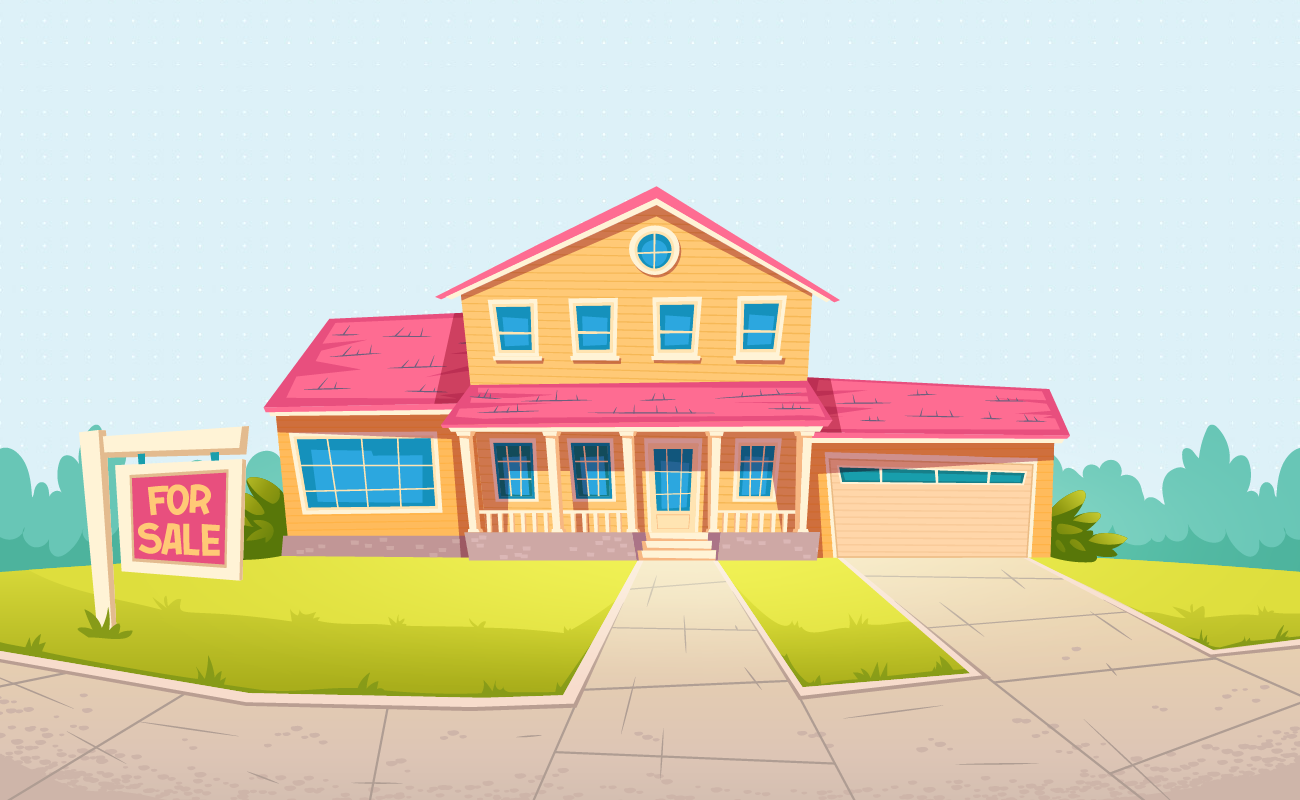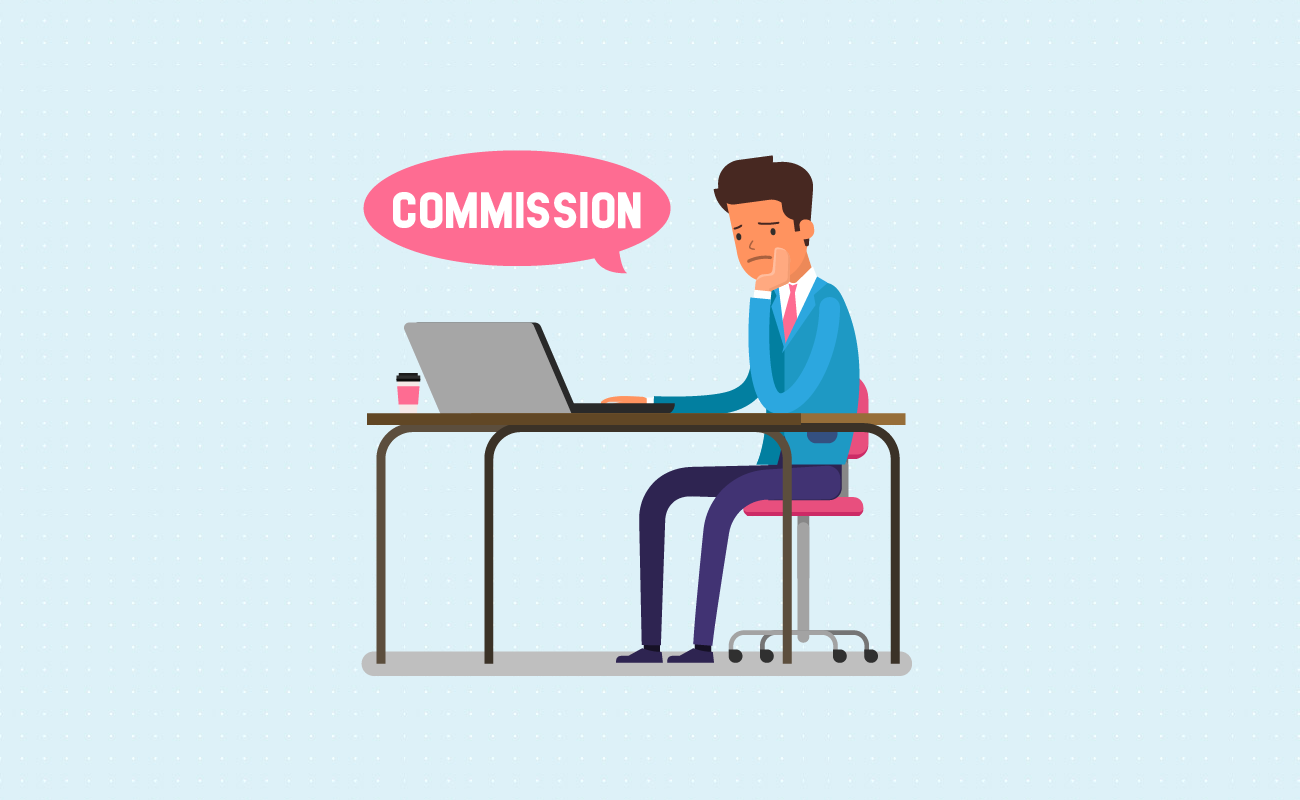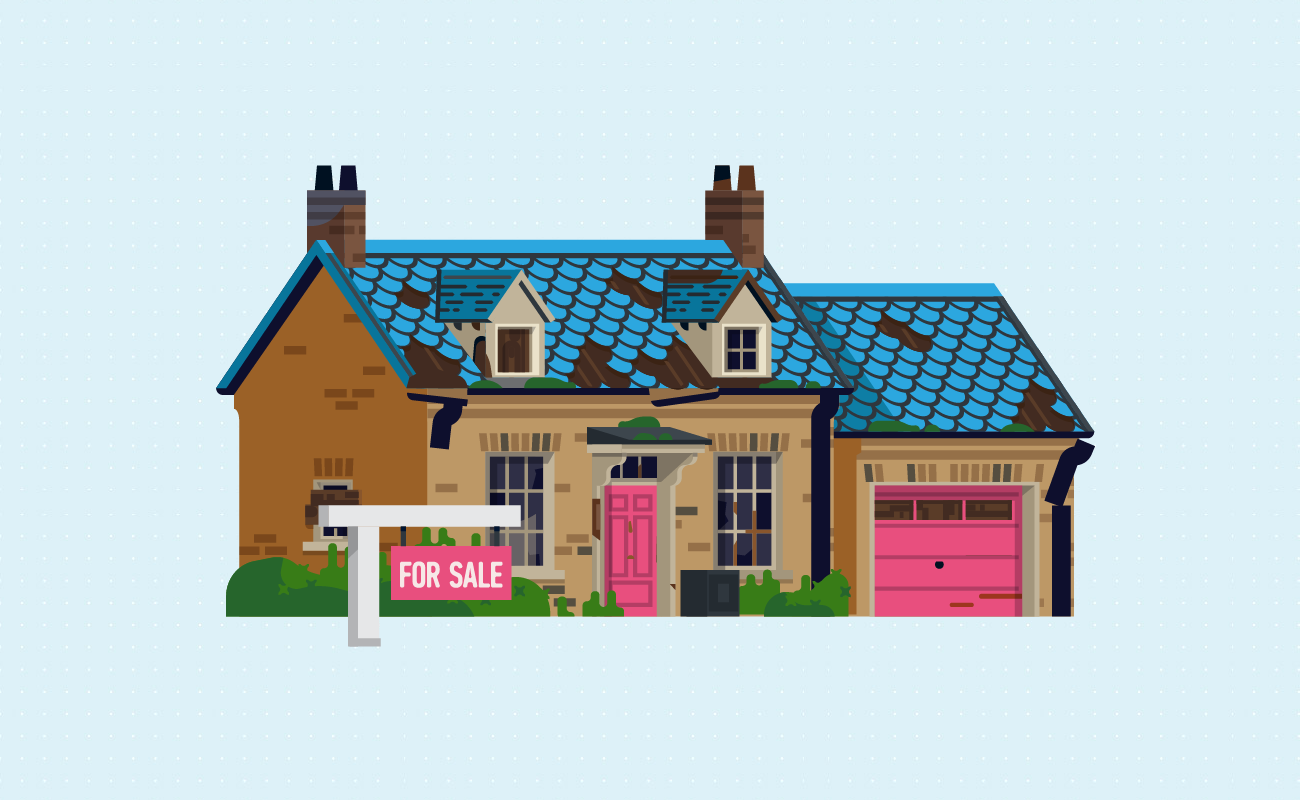Fixed Rates
30 yr
25 yr
20 yr
15 yr
10 yr
Compare Terms
Compare Rates
Real APR
Adjustable Rates
Qualification
Affordability
Renter Affordability
Rent vs Buy
Price per Square Foot
Jumbo
Home Sellers
 Realtor Commission Calculator
Realtor Commission CalculatorThis calculator helps sellers estimate the cost of selling their homes.
Guide published by Jose Abuyuan on July 13, 2020

One of the big challenges of real estate is its illiquidity. There is no way you can tap into the value of your home without selling it or taking on debt. This is fine when you’re in your home for keeps. Not so when, for one reason or another, you want to sell your home. When it’s time to move on, the challenge of finding the right buyer for your old home might be daunting.
Real estate agents streamline the process of home selling. Many sellers, however, are reluctant to take their services. Agents make their money through hefty commissions costs. Selling without an agent is an attractive proposition, at least on the surface. The difficulties involved have put off many prospective sellers from doing it themselves.
Before the internet, the search for an ideal home was a time-consuming endeavor. Buyers had to look at listings and visit many places. They could often narrow their search by calling an agent or realty company.
Sellers, meanwhile, could find it hard to make their homes visible to potential buyers. They may also get overwhelmed with the minutiae of preparing a home for sale. In addition, they might not have the skill or charisma to convince buyers. Nor could they always get the best price for their homes.
The process of buying or selling a home could take months because of the wait. Even in the internet age, you could expect to wait at least two months before you find the right buyer.

Since 2018, the average home has remained on the market for up to 93 days. With an average of 30 to 45 days to close, your house could be on the market for up to four months. This is a big improvement since 2010, where a home can remain for sale for up to 140 days. And we’re just talking general averages.
The time your home spends on the property market will depend on a few factors. Chief among them is the condition of the real estate market in the area. You can, in general, sell homes faster in major cities and suburbs than in rural towns. Booming real estate markets also guarantee quick sales.
Seasons also play a role in how fast you can sell your home. The best time to sell a house is around late spring, between May to July. The seasons can affect what type of buyer will be drawn to your property:
| Season | Buyers |
|---|---|
| Spring | Most general buyers prefer to move in the spring, when the weather starts to get warm. |
| Summer | People who buy in summer are families who want to get settled in before the school year starts. Many buyers are also motivated by warm weather and longer viewing hours. |
| Autumn | Buyers in general may want to move in before winter or the holiday rush. |
| Winter | The winter slump does not affect you if you live somewhere warm. You could also market your homes to snowbird retirees. |
Even the day you list your home can make a big difference, depending on where you live. This chart from Zillow reveals the ideal times you can sell a home in several major metro areas across the country:
| City | Day of the week to list | Date range to list | Average sales premium | Days sold faster than average |
|---|---|---|---|---|
| New York | Friday | May 16-31 | $3,100 | 11 |
| Los Angeles | Thursday | May 16-31 | $6,000 | 3 |
| Chicago | Friday | May 1-15 | $3,300 | 10.5 |
| Dallas | Saturday | July 1-15 | $1,400 | 2.5 |
| Philadelphia | Friday | April 16-30 | $2,400 | 9.5 |
| Washington, DC | Thursday | April 1-15 | $3,800 | 6 |
| Miami | Saturday | July 1-15 | $1,400 | 1 |
| Atlanta | Friday | June 1-15 | $1,300 | 5.5 |
| Boston | Wednesday | May 16-31 | $5,500 | 5 |
| San Francisco | Friday | April 16-30 | $10,000 | 2.5 |

In real estate, one buyer is no buyer. Having several people interested will put the bargaining chips in your favor. Real estate agents understand this. They would often offer your home to as many potential buyers as possible.
Selling through an agent is optional. There are no laws requiring selling homes through agents in the United States. Today, most homeowners buy and sell properties through real estate agents, and with good reason.
Your agent provides you with several advantages. First is that they take care of most of the details of home selling. This takes much of the work away from the selling process. Let them handle it and carry on with your life.
An agent will often have a few resources that sellers usually do not have. They have access to various housing databases, including the Multiple Listing Service (MLS). These resources will help make your home visible to a greater number of buyers. Thus, they often take much of the responsibility for marketing your home.
Moreover, a seasoned agent is also more knowledgeable about the real estate market in your area. You can get a competitive price from your agent based on how other houses are priced. You can then tailor your asking price to suit the market.
Much of the difficulty in selling a home is tied to the current state of the market. There are two general conditions of the market, which reflect the cycle of supply and demand. A buyer’s market reflects a greater supply of available homes. A seller’s market represents a growing demand for homes. In their extremes, they could manifest as a housing glut or a housing shortage.
In a seller’s market, demand for homes is high. This assures you that there will be buyers within the immediate future. You also have more cards on the table to price higher than the median. On a buyer’s market, the abundance of homes can make competition for prices stiff. You need to tailor your strategy to upsell a feature of your home and justify your asking price.

Real estate agents make much of their money through commissions. This is a percentage of the selling price awarded to the buying and selling agents for closing the deal. How this is paid for varies from country to country. In the U.S., the seller pays a percentage of the commission to the buying and selling agents.

Be careful not to price your home too high. An asking price well above the median price can put off many potential buyers.
For our example, let’s assume the agents are asking for 5.5 percent. If you want to receive a specific value from your proceeds (let’s say, $260,000), you’ll need to determine a selling price. Treat the proceeds as part of the whole selling price rather than a remainder. The equation goes as follows:
= Your Desired Proceeds / (100 – Agent Commissions)
= $260,000 / 100% – 5.5%
= $260,000 / 94.5%
= $260,000 / 0.945
= $275,132.27
Now, suppose your agent sold your house at the cost of $280,000. Your brokerage also charged $300 for advertising. Thus, your costs would be as follows.
| Commission Amount | $15,400.00 |
| Total Sales Costs | $15,700.00 |
| Net Proceeds (Before Taxes) | $264,300.00 |
This will be the example we’ll use moving forward.
It might seem unreasonable at first glance. But sit back and look at what the agent brings to the table. They address a lot of the legwork you would otherwise be doing. Agents have a lot on their plate, which is why they charge so much.
Moreover, not all of the commission goes to the sale’s agent’s pocket. It is first split between the buying and selling agent. If the buying and selling agent is the same person, they get to keep both amounts. The money is then split between the agent and their brokerage at a pre-agreed rate, such as 60:40. Suppose your agent only represents you. They would only receive half of the commission ($7,700). Of this amount, they would only receive 60 percent ($4,620).
You’ve probably heard of real estate agents aspiring for that one big break that could set them for life. Exceptional sales of valuable property come with hefty commissions. You’d make a lot of money, too, if you sold property in the hundreds of millions. And while these are rare, agents can make a hefty sum by closing a new sale each month.
Sometimes, richer clients save money by incentivizing their agents through tiered commissions. They negotiate lower percentages by promising an incentive for their agent. In one example featured in Mansion Global, this was a percentage of the difference between the asking price and the final selling price.
Because the agent receives the incentive, they get to keep all the money. Thus, they accept a smaller commission, which they split with the buyer’s part. Since they have something to gain, agents are motivated to get the best deals possible. The buyers, meanwhile, save a lot more money on their total commission payments.
Since 2019, the average percentage of real estate commissions in the U.S. was around 5.7 percent. This hasn’t always been the case. Average commissions hovered around 6 percent in 1992 . Later, they gradually dropped throughout the 2000s, only to rise again in recent years.
How do real estate commissions the U.S. compare against other nations? The Wall Street Journal listed the average commission percentages across 32 countries recently. The data reflects trends over a 13-year period between 2002 and 2015. The chart also includes, when available, details on how the commission is paid:
| Country/Territory | Percentage (2002) | Percentage(2015) | Notes (2002) | Notes (2015) |
|---|---|---|---|---|
| Argentina | 6% | 5% | 6% commission, half paid by the buyer, the other half by the seller; buyer’s agent not required | 3%-4% paid by the buyer and 1%-2% paid by the seller |
| Australia | 2.5% | 2% | 5% commission on the first $18,000, 2.5% exceeding that | 2% paid by the seller; buyer’s agent not typical |
| Belarus | 10.5% | 2% | 6%-15% commission, averaging around 10%. Public information is scarce. | 1%-3% paid by the seller; buyer pays a fixed amount of $1,500 |
| Belgium | 3% | 3% | 3% commission paid by the seller | No change |
| Brazil | 5% | 5% | 5% commission, possibly lower for more expensive homes | No change |
| Canada | 4.5% | 3% | 3%-6% commission | 3% paid by seller, with some markets as high as 5% |
| China | 7.5% | 2% | No set regulations and standards for a real-estate transaction in China. Commission fees vary from 5% to 10%.& | 0%-0.5% paid by the seller. Buyer pays 1%-3% |
| Denmark | 3% | 2% | 2%-4% commission. Buyer pays 25% of sale price transfer tax; advertising provided by real-estate agents | 1%-3% paid by the seller |
| Finland | 4% | 2% | Fees run to about 5% of the sale price on condos, and 3%-4% on single-family homes. More expensive homes have lower commission fees. The government collects a value added tax (22% of the selling price). | 2% paid by the seller, up to 3% in some regions |
| France | N/A | 5% | Only 50% of property sold are listed with a real-estate agent; transactions are kept very private. About half of homes sold by the owner. | Two-thirds of sellers use a real-estate agent with commissions ranging from 4%-6% paid by the seller. Buyers will compete to pay these fees when inventory is tight |
| Germany | 4.5% | 4% | Negotiable rate that ranges from 3%-6% | 3%-6% typically split between seller and buyer; in some markets, the buyer covers the full commission |
| Greece | 4% | 4% | 4% commission, split evenly between buyer and seller | No change |
| Hong Kong | 1% | 2% | One agent may deal with both the buyer and seller. However, both parties typically have separate lawyer representation. | After introduction of buyer’s agent, 1% paid by seller and 1% paid by the buyer |
| Indonesia | 5% | 4% | 5% paid by either buyer or seller. A buyer’s broker is required for real-estate transactions. | 3%-5% paid by the seller |
| Ireland | 1.75% | 1.5% | In cities 1.5%-2%, and small towns 2- 3%; also properties can be sold through an auction system. | 1%-2% paid by the seller |
| Israel | 4% | 4% | 4% commission rate equally split between buyer and seller’s agents. | 2% paid by seller, 2% paid by buyer |
| Italy | 5% | 5% | Paid by both buyer and seller: each party pays 2%-3%. | 2%-3% paid by seller, 2%-3% paid by buyer |
| Jamaica | 5% | 5% | 5% paid by the seller | No change |
| Japan | 3% | 6% | 3% paid by the seller | 3% paid by the seller |
| Malaysia | 2% | 2% | 3% on the first $100,000, then 2% of the remaining sale amount | 2%, split between buyer and seller, sometimes paid by one side |
| Mexico | 7.5% | 7.5% | 5%-10%. Large emphasis on Multiple Listing service. | 5%-10% paid by seller, depending on region |
| Netherlands | 1.75% | 1.5% | 1.5%-2%. Broker represents either the buyer or the seller but not both. The seller pays the fees. | 1%-2% paid by the seller; buyer’s agent infrequent but if used, paid by buyer |
| Norway | 2.5% | 1.75% | 2%-3%. Broker represents both parties in the transaction | 1.5%-2% paid by the seller |
| Philippines | 5% | 4% | 5%. Broker represents either the buyer or the seller, not both. | 3%-5% commission, split or paid in full by one side of transaction |
| Russia | 7.5% | 4% | For Sale by Owner (FSBO) listings are very common. Reliable market information is difficult to acquire. | 3%-5% paid by the seller; typically no buyer’s agents |
| Singapore | 1.75% | 1.5% | For-sale-by-owner listings are rare. | 1%-2% paid by the seller |
| Spain | 5% | 5% | Commission depends on the property location, averaging 5% of total estate price. | 5% paid by the seller |
| Sweden | 5% | 1.5% | 5% paid by seller; Higher commission charged for lower-priced units | 1%-2% paid by the seller |
| Thailand | 4% | 4% | 3%-5% | No change |
| Trinidad and Tobago | 4% | 3% | 3%-5% | 3% commission more common |
| United Kingdom | 1.5% | 1.5% | 1%-2% is typical; in very competitive areas 0.5%-0.75%; in low-priced areas as high as 3.5%. | 1%-2% paid by the seller |
| United States | 6% | 5.5% | 6%-7%. Advertising commonly provided by real-estate broker/agent | 5%-6% paid by the seller |
The U.S. has higher-than-average commissions compared with the countries listed above, rivaled only by Mexico and Japan. In many places in Europe, commissions have been replaced by fee-for-service systems.
Because of this, not everyone is convinced that selling through an agent is the right way to go. For them, the do-it-yourself approach seems like a good alternative. Many people have come to believe that the savings they make is worth the extra effort to sell on their own.
Now, there are benefits to going solo. Some are put off by the size of percentage-based commission payments. This often means that sellers of pricier homes must pay a higher amount for the same service. Meanwhile, commissions can cut deep into the profits of those with narrow margins.

You can attract buyer’s agents by still offering their commission payments. This can still save you half of the costs of commissions.
Sellers may also want a more personalized approach to selling that they cannot get from an agent. After all, agents are focused on closing as many deals as possible. An agent might pressure you to sell your home for less to speed up their sales. Through FSBO, you can remain stalwart on your price and not be pressured to lower it.
You would also be more familiar with your home. You can vouch for your home’s quality and understand everything that makes it desirable. And who better to tell them what’s great about a home than someone who lived there? Buyers will trust your opinion.
The FSBO approach is thus much more difficult than it lets on. But if you do it right, you could stand to earn a lot more. This method is ideal for house flippers who go through a lot of properties. It also works well for people already well-versed in marketing.

Exposure is the key to selling your house by yourself. Consider paying an agent to include your home on the MLS. Have your home listed on websites such as Trulia, Zillow, or Realtor.com. If you can afford it, dedicate a budget to advertising.

Maximum profit demands maximum effort, but can you really give FSBO your all?
Cutting the middleman has its disadvantages. Many home sellers soon find out that selling a house is no walk in the park. Of the 36% of home sellers who plan to go alone, only 11% of them succeed. FSBO sales often make less than those by agents. In 2017, FSBO homes sold at a median price of $190,000, while agent-assisted sales sold at $250,000.
Part of the issue lies in attachment. You might have spent several decades to a lifetime in your home. A part of you is going to second guess the decision to sell, even if you aren’t aware of it. And that subconscious reluctance will undercut your ability to upsell your home.
Your potential buyers might not be comfortable with you around to sell the house. They might think twice about discussing their reservations. In many cases, they’d rather avoid the awkwardness by talking to a sales agent while the owner is away.
Although you save on commissions costs, selling it yourself doesn’t remove all your expenses. You do end up paying for many other services. Some of the costs to watch out for include the following:

One of the best ways to market a home is by removing personal mementos during home staging. You must make your buyer imagine their new home in that space. Your personal items belong somewhere else now, anyway.
The state of the market might also work against you. In a seller’s market, any home for sale would have no shortage of buyers. You might succeed in selling a fixer-upper for a hefty sum with a little patience. In a buyer’s market, however, you’re trapped between a rock and a hard place. You wouldn’t be competing with the other homebuyers but also the agents who work for them.
A lot of the skills that let you sell your home are only ever worth developing if you sell houses for a living. If you have a 9 to 5 job and a family to take care of, you won’t always have time to focus on selling your home. With that specialization, you might as well be an agent yourself.

Most real estate agents are trained to spot scammers from legitimate buyers. You need to be extra careful and learn about scams and their red flags to protect yourself.
You can split the difference between hiring an agent and selling your home by yourself through low-cost brokerages and agents. Each of them differs on what services they offer.
These options help you reduce the costs of seller’s commissions. You still need to pay half of the commission for the buyer’s agent.

The real challenge begins with attracting a buyer. Working with an agent will help you find customers and take care of some of the details. But your house still does some of the work. Make sure that the home is as attractive to the would-be buyers in your demographic. Your agent can advise you by recommending improvements and target markets. Or you can do your own legwork and find out for yourself.
Consider the market of your home. If you plan to sell to first-time home buyers, you only need to do the most basic repairs and color schemes. Many buyers appreciate an intact home. They only buy a fixer-upper if they’re priced out of the market. If you’re planning to target more upmarket buyers, be prepared for the costs of a serious home makeover. Be sure not to overdo it, though. Do not spend too much so you can recoup the renovation costs.
Never underestimate the power of curb appeal. First impressions last, and buyers are often drawn to the nicest looking house. The prettier your home looks from the driveway, the better it will sell.

Use your home’s renovations as a selling point. Not all fixer-uppers are worth salvaging. A house that is in disrepair might cost its new owners more in renovation than they stand to save in buying price.
Consider your home’s location before settling on a selling price. Examine all the things about your property that could make it more (or less) desirable. Think about the places that’s nearby. Is it close to a good school district, a park, or a shopping area? How about traffic? What’s your neighborhood like?
Do not neglect staging. Your home should look good both in pictures and in real life. Keep your house neat and orderly for staging. If you’re selling it yourself, get a good photographer. It’s important to capture all your home’s good sides.
And if you’re a buyer, drop by our guide on our mortgage payment calculator.
Jose Abuyuan is a web content writer, fictionist, and digital artist hailing from Las Piñas City. He is a graduate of Communication and Media Studies at San Beda College Alabang, who took his internship in the weekly news magazine the Philippines Graphic. He has authored works professionally for over a decade.